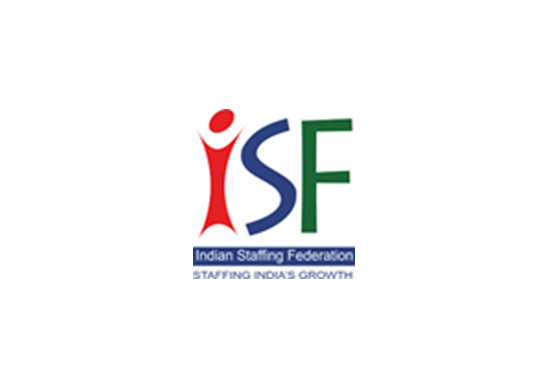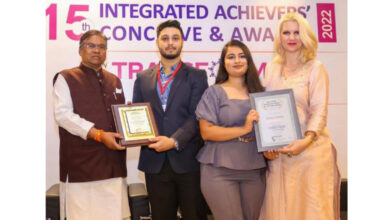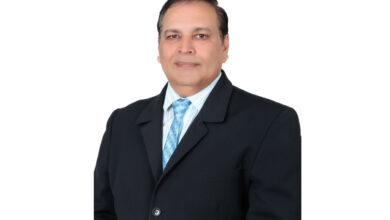Indian Staffing Federation (ISF) expands representation to include Facility Management & Security Services sectors
ISF will now represent around 18.5 million Indian workers

- India’s domestic outsourcing industry grew 20-23% YoY in Q3 FY2022
New Delhi, April 23, 2022: Indian Staffing Federation (ISF), the apex body representing the staffing/private employment services industry in India, today announced expansion of its representation to include Facility Management and Security Services companies.The alignment between the subsects of the manpower outsourcing industry – Facility Management and Security Services – is similar and the current representation across labour market issues impacting each of these sub-segments equally. ISF will now represent the interests of around 18.5 million Indian workers.
The move makes Indian Staffing Federation, the single most important voice representing the fast growing contract/temp staffing space in India (India’s domesticoutsourcing industry grew 20-23% YoY in Q3 FY2022)and is aligned to the global practice where the word contract/temp staffing encompasses all forms of outsourced staffing including these two areas.The staffing definition is represented globally for all manpower supply and labour issues beyond the contract staffing industry. ISF, which has been fervently working on the issues to highlight the complications on matters of GST slab, EPFO/ESI (social security) challenges, issues of wage, gratuity for contract staff among many, to come with natural involvement from all segments of manpower outsourcing companies. On behalf of the industry, ISF finds the inclusiveness will allow for the common matters to be represented to the government authorities, a wider view of the problem and thus finding easier resolve.
While the security services industry is currently regulated through PSARA licence, facility management and staffing companies are governed through CLRA.In the new labour code, ISF has been able to transition CLRA into a State/National licence, to bring ease of operations for both businesses and manpower outsourcing players.
On this major announcement, Lohit Bhatia, President, Indian Staffing Federation highlighted, “This is a step towards driving formal employment in the country through an industry which is growing at a CAGR 18-20% YoY (excluding Covid year)”. Bhatia added, “Today staffing industry is estimated at nearly 3.3Mn workforce which totals nearly 10Bn USD revenue and is estimated to grow to USD ~60BN or INR 450,000CR as current exchange rates by 2030. Within next decade, Indian staffing Federation and its members at an estimated 50% of the representative voice will be appx USD 30Bn or 225,000Cr INR. Currently, the staffing members alone contribute nearly 5000Cr of GST, over 6700Cr of EPFO, 1100Cr of ESIC. The expansion will further add more contribution from Facility and Security Services companies, represented through ISF.”
Added Pramod Pachisia, Vice-president, ISF: “The promise of decent work, social security, financial inclusion, career progression are the key pillars of this federation and its members. The expansion only broadens the area whereby the pillars will be guiding light for Security Services and Facility Management organisations as well, helping to drive overall formal employment across.”
In her comments, Suchita Dutta, Executive Director, ISF said,“Given that the manpower outsourcing industry among others, is highly governed with the CLRA and major labour laws, we urge the government to implement the much awaited labour reforms at the earliest. The manpower outsourcing industry, be it facility, security or contract staffing, awaits the national/State licence, so that there is ease of doing business or employers, social protection for job seekers and structured business expansion for manpower outsourcing companies.”
The federation, which is eagerly discussing the implementation plans of the four labour codes with Ministry of Labour and Employment, commits to keep working closely for ensuring early implementation of the codes. ISF is also working with the States, to complete their process of rule drafting. In this light, the primary rules that will directly impact manpower outsourcing industry and its growth will be the National/State Labour license for 5 years and Reduction of registers and returns. Indian Staffing Federation is also making attempts to ensure and bring employment under a lower GST slab as ‘merit services’.
The form of employment that is growing in double digits and clearly being acknowledged through the EPFO data is coming from expert services or the manpower outsourcing industry. The progressive measures will benefit employment formalization and drive growth.














